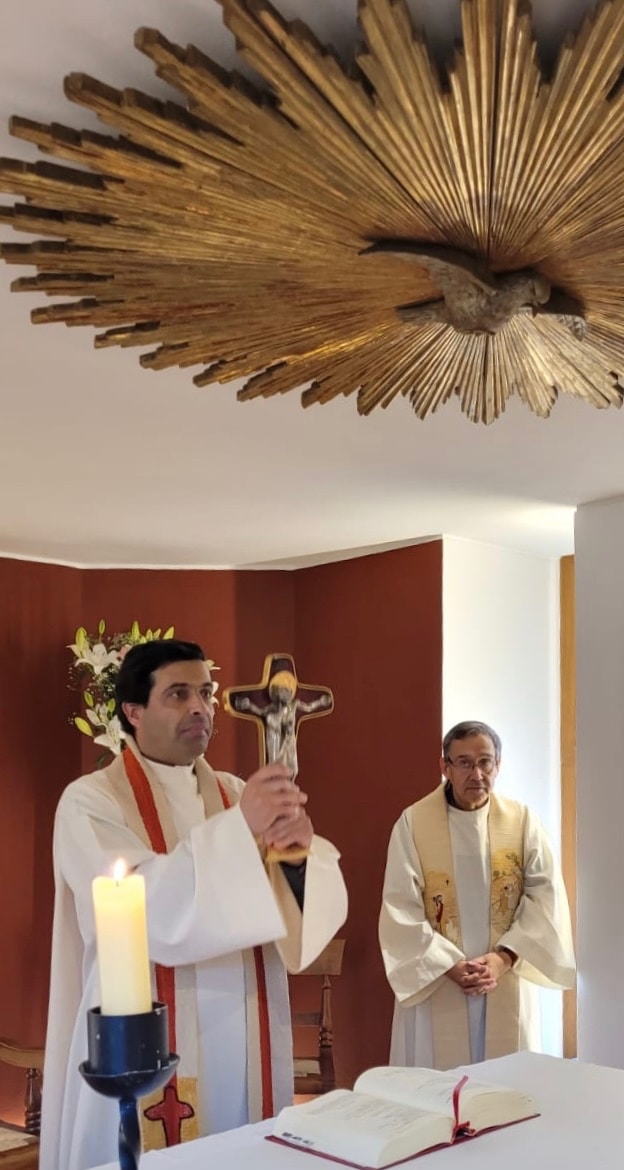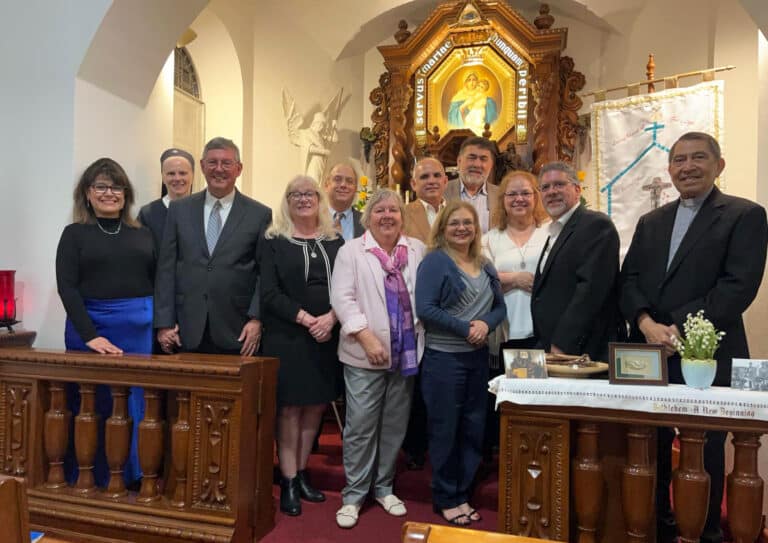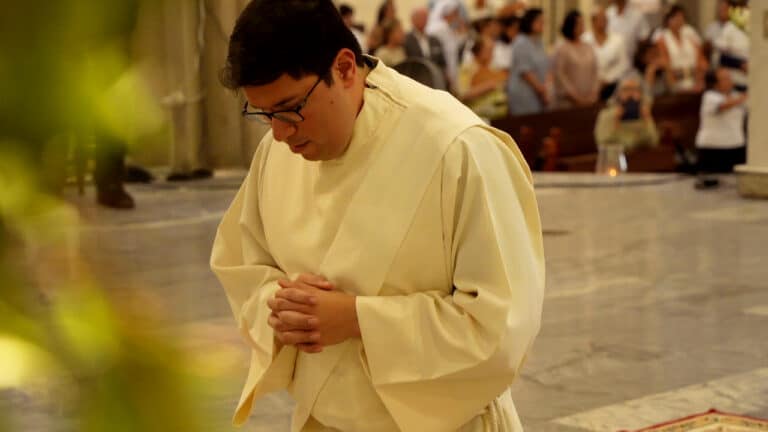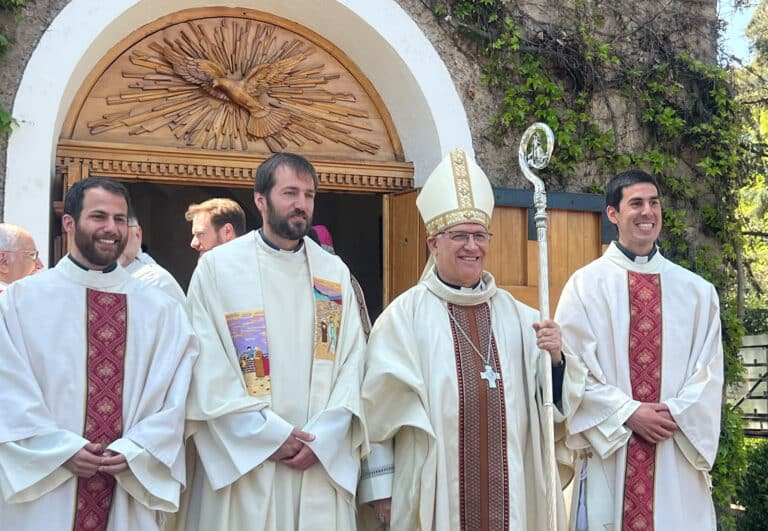Father Diogo, born in Lisbon, is 50 years old and the third of five siblings. His parents belong to the founding generation of Schoenstatt in Portugal and are members of the Institute of Families.
He was a member of the Schoenstatt Youth since 1985. After studying engineering at the University of Lisbon, he decided to join the community of the Schoenstatt Fathers. He began his candidacy in 1992 in Bellavista, the same place that now welcomes him as its Provincial.
After his theology and philosophy studies at the UC, he was ordained as a priest in Lisbon on May 18, 2002. His pastoral work was always in the Iberian Peninsula. In Lisbon he was advisor of the Boys’ Youth, the Country Mission project and of the Santa Maria School, part of the network of Kentenich schools. He was also advisor to the Movement in the city of Porto. Since 2015 he was Superior of “Mary’s Sion”, a delegation of Schoenstatt Fathers consisting of 12 priests that comprises the entire Iberian Peninsula. He combined his work as delegate with his work as advisor to the Women’s Branches in Madrid (Mothers, Mothers’ Federation, Girls’ Youth and Apostolic Women’s League) and supporting the Serrano Shrine’s Pastoral team.
As of December 2021, he has assumed the position of Provincial Superior of the Province of Pentecost, which includes Chile, Ecuador, Mexico, USA, Portugal, and Spain.
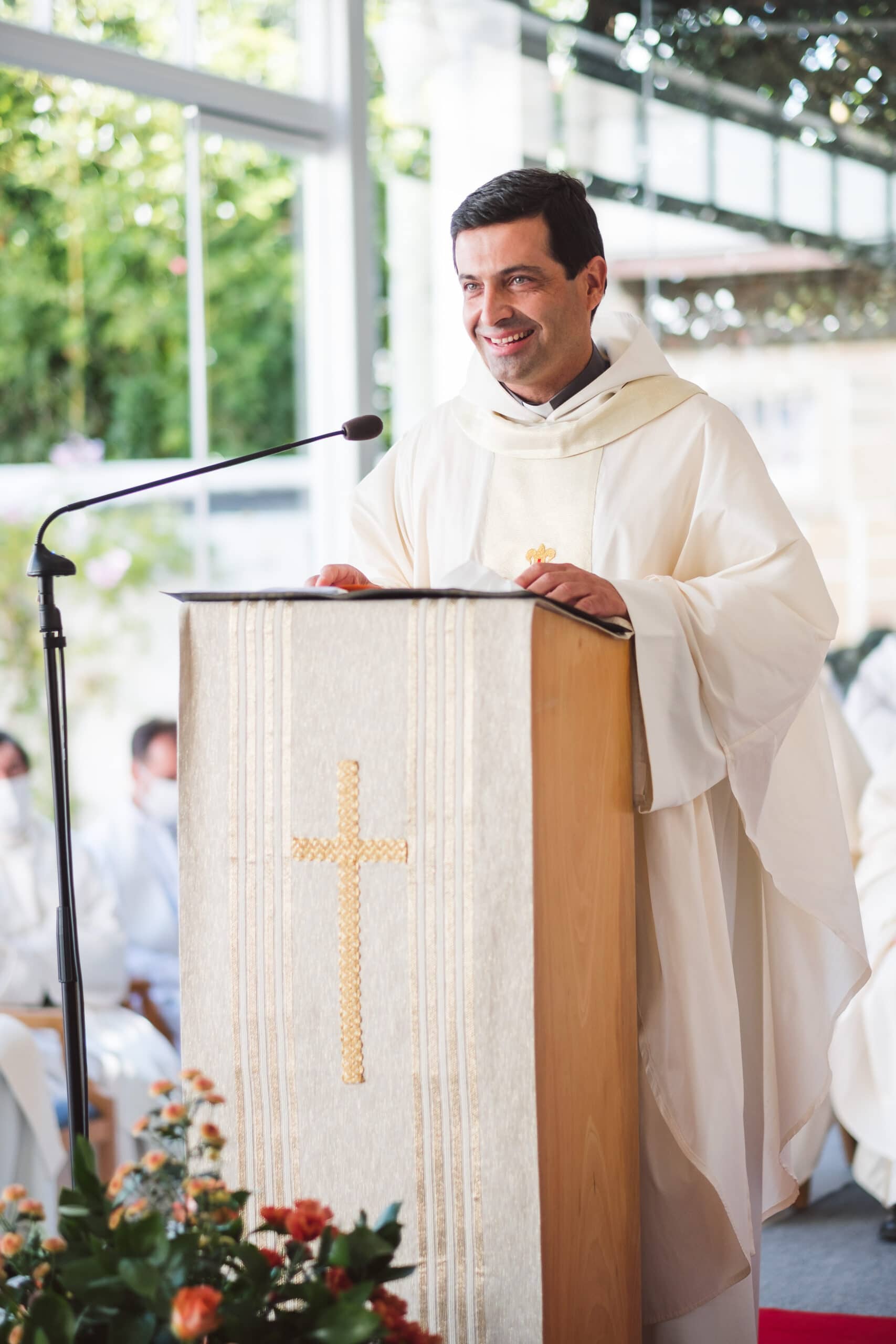
Father Diogo, tell us a little about the Province of Pentecost (number of members, places, challenges…).
– It is a large province, scattered in many countries, with 134 members (113 priests and 21 seminarians) at present. Most of them work in Chile and the rest work in branches in Ecuador, Mexico, the United States, Portugal, and Spain. Furthermore, we have a considerable number of Fathers who help in other territories of the community (Burundi, Brazil) and with international assignments or formative work.
One of the great challenges is the management of these human resources given the number of countries in which they are scattered. Vocations are also a challenge. Currently we have the same number of seminarians (21) as we have of priests over 75 years of age (21). In other words, we are not growing. We ask for prayers for vocations since it is our common responsibility.
You represent a generation of young priests, ordained at the turn of the millennium. How do you interpret your election, considering that more than half of the province is older than you?
– Our province has members of all ages, stretching from postulants currently entering at an average age of 25 to older priests well past 90 years of age. Being 50 years old now, I feel like a bridge between generations. I can somewhat understand the younger ones as well as the older ones. The generational differences are very significant, especially in the use of technology and the way we understand the world nowadays. In a sense I feel closer to the older generations. And yet, I am very inspired and motivated to learn from the younger ones and from their way of looking at life. I have great hope in the youth!
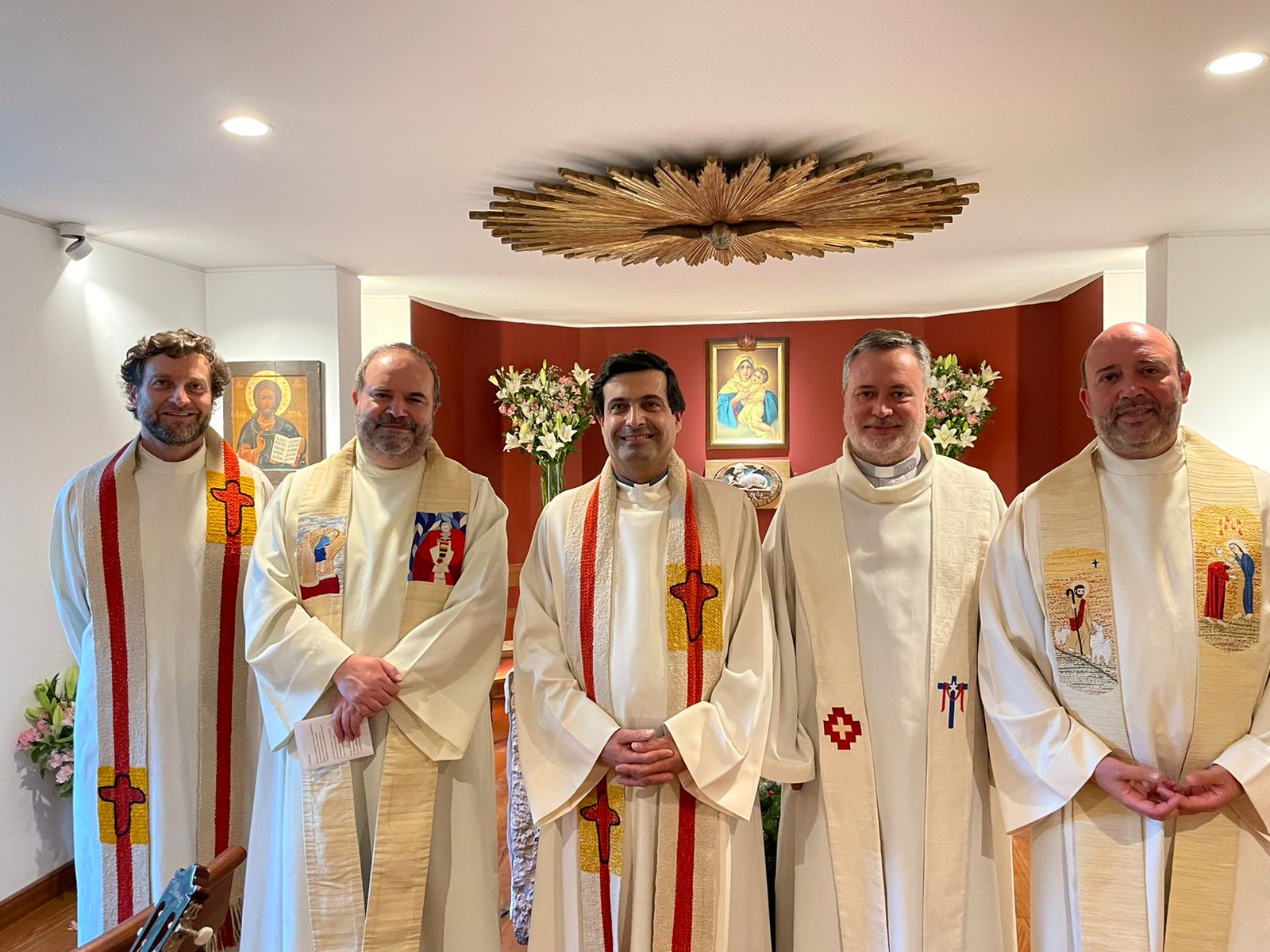
Part of your pastoral duties had to do with the area of youth and education, what lessons have you learned through that experience?
– There is a fundamental difference between working with the Schoenstatt youth and working in schools. With the Schoenstatt youth it is an informal, free education, where young people participate if they are interested and drop out if they are no longer interested. This makes it especially challenging. I learned that it works through face-to-face contact, plays on healthy personal attachments, and takes off in projects that excite the young.
In schools, some aspects of the above can be adopted, but it must be remembered that this is a formal and compulsory education. Young people cannot leave school if they are not motivated. I am convinced that the most important thing here is the quality of the formation in all senses (academic, human, religious, artistic, musical, athletic, etc.) in order to attract and encourage the students to leave their mark on the world.
The subject of consecrated life, religious vocations, is going through a complex period. What assessment do you make and what measures do you propose to increase vocations?
– Generally speaking, all religious communities are going through difficult times, especially in the West. Vocations have decreased significantly, especially in Europe. Sometimes I think that God is calling fewer people to the consecrated life because he is calling on the laity to take their place in the Church as disciples and missionaries. Today’s and tomorrow’s Church will surely be a Church of the laity. Consecrated life will not disappear. But it will certainly be formed by smaller and more committed communities. Vocations arise essentially as a result of an individual’s inclination and, in this sense, what is decisive is the testimony of a life following Jesus: joy, spirituality, hope and generosity in self-giving.
